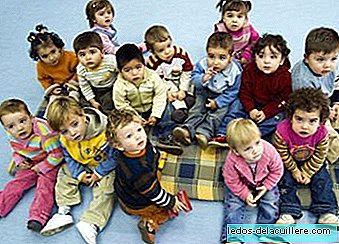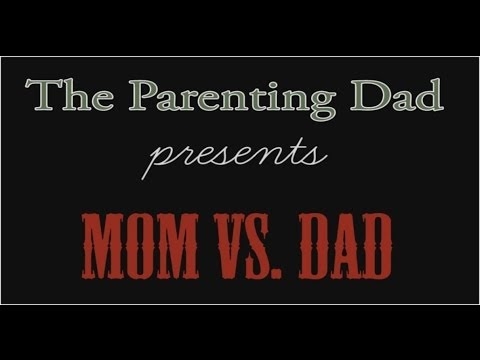Spanish boys and girls premiere mobile from 8 years old, the average age being 13 years old. From that moment they access social networks in a more private way than with a computer, the possibility of sending and receiving messages via WhattsApp, Facebook Messenger, etc. and, ultimately, to expand the possibility of communicating with other people.
This makes many parents worry: Who do you talk to? What does it tell you? What they say? What will they be up to? Will you have a boyfriend? What will they say? And that many, in their thirst for knowledge, end up by pick up your son or daughter's phone and read their messages. Well, maybe they should know that, in case of complaint, spying on someone else's messages or emails has a jail term of one to four years.
Children have the right to privacy
Article 18 of the Constitution says in point 1 that all persons have the right to privacy, including minors:
The right to honor, personal and family privacy and the image itself is guaranteed.
And the same article, in point 3 says that:
The secrecy of communications and, especially, of postcards, telegraphs and telephones is guaranteed, except by judicial resolution.
Come on, the Constitution says that, unless a judge says so, nobody can look at anyone's mobile To read your private conversations.
Organic Law 1/1996 on child protection reflects what the Constitution says and adds that parents are the main actors in the process:
1. Children have the right to honor, personal and family privacy and their own image. This right also includes the inviolability of the family home and correspondence, as well as the secrecy of communications. 5. Parents or guardians and public authorities will respect these rights and protect them against possible attacks by third parties.
Finally, Organic Law 10/1995 of the Criminal Code, in article 197 "On the discovery and disclosure of secrets" says that:
1. Who, to discover the secrets or violate the privacy of another, without their consent, seizes their papers, letters, emails or any other documents or personal effects, intercept their telecommunications or use technical listening devices, transmission, recording or reproduction of sound or image, or of any other communication signal, will be punished by prison sentences of one to four years and a fine of twelve to twenty four months. 2. The same penalties shall be imposed on those who, without being authorized, seize, use or modify, to the detriment of a third party, reserved personal or family data of another that are registered in files or computer, electronic or telematic media, or in any other type of file or public or private record. The same penalties will be imposed on those who, without being authorized, access them by any means and who alter them or use them to the detriment of the owner of the data or a third party. 3. The penalty of imprisonment shall be imposed for two to five years if the data or facts discovered or the captured images referred to in the previous numbers are disseminated, disclosed or transferred to third parties. He will be punished with prison sentences of one to three years and a fine of twelve to twenty-four months, which, with knowledge of its unlawful origin and without having taken part in its discovery, will perform the conduct described in the preceding paragraph.
In short, neither parents, nor a friend, nor anyone, has the right to read the messages of children or adolescents without their consent, and less to then make public what they have discovered, because even discovered content is punished on the other, everything to protect the privacy of children, adolescents and people in general.
This, of course, would happen in case the child, or a third person, will denounce the parents. Hard yes, unlikely too, but not impossible in cases where parents and children have a bad relationship.
It shouldn't take a law

Personally, I was unaware that there was a law that contemplated this phenomenon, which is probably quite common. You go home, you are picking up things and you find your child's mobile that is in the shower (I can't think of another time when I can be away from him). The temptation is great, and many parents fall.
They fall, but they shouldn't, they shouldn't need them, because that would mean that between parents and children there is a relationship of trust consolidated by many years of closeness, dialogue and respect.
As I mentioned in the post 27 things that children should know at age 12 (and better know them for you), that age, 12 years (more or less) is a limit age at which our actions and explanations They begin to stop penetrating in the same way as in childhood.
At that age the peer group has many times as much or more weight than the parents, and that is when we have to appear confident that the years we have shared and the values we have transmitted to them will be sufficient for them to know how to decide and act. This does not mean that we should demand anything concrete, because they are going to be wrong like every human person, but at that age our ability to control them is fading and when some parents continue to squeeze a lot and continue to try to control as if they were smaller, the risk of the child doing the opposite is obvious: "forbid it and I will be more eager to do so ".
How to trust them? Well laying the foundations in advance of the risks and dangers that social networks have. Children access the internet, youtube, etc. from an early age. Being with them, applying filters and discussing the subject is a job that belongs to parents and that we must carry out from the beginning.
The day we open a Facebook account, then we have to make clear the importance of never revealing personal data, not to hang photos or messages where it is deduced where they are or where they are going, to not hang photos where other friends or people without Your approval, let them know that many people are not who they say they are, etc.
So, based on that trust, we must allow them to have that intimacy and their secrets, and never betray her, just as we would not have liked our parents to carry out such intrusions.
That is why the law should not be necessary, because parents should respect that right to privacy of children. Why does it exist? Because, unfortunately, not all parents have the same relationship with their children, not all parents trust them and when you do not trust you just think you still have the right to continue controlling their lives.












